Singaporean developers retain throne in real estate
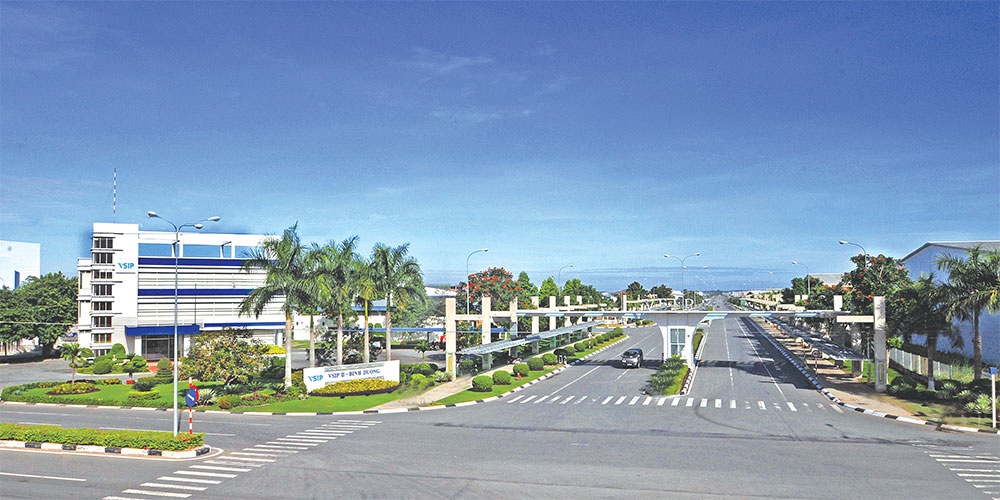 |
| Along with commercial real estate, Singapore’s developers are also delving into industrial complexes, Photo: Le Toan |
Vietnam is one of the top five destinations chosen by Singapore’s ultra-high-net-worth individuals to invest in real estate, behind Australia, India, Hong Kong, and the Chinese mainland, according to the Foreign Investment Agency.
The agency, under the Ministry of Planning and Investment, said that as of June, the real estate sector has accumulated more than 1,100 foreign-invested projects with a total capital of $66.4 billion, accounting for 15 per cent of total overseas funding and ranked second in terms of investment attraction, after the manufacturing and processing industry.
Some 48 countries and territories have invested in the real estate business, led by Singapore and followed by South Korea, the British Virgin Islands, and Japan.
Knight Frank’s Wealth Report 2023, published in April, shows that one of the factors that make Vietnam’s real estate attractive to foreign investors is the suitable price of luxury apartments compared to other international cities. The report ranks Ho Chi Minh City third in terms of suitable prices for luxury apartments, after Sao Paulo and Cape Town.
Knight Frank Vietnam managing director Alex Crane said that the great interest from Singaporean investors in Vietnamese commercial real estate will continue in the near future, most of which comes from private capital.
“This is because the private investors can also exploit and utilise opportunities from other developing economies, or in developed markets where there are advantages in safety and high profitability,” Crane said.
Jeff Foo, past president, the Institute of Estate Agents Singapore, told VIR that the long-term prospects for Vietnam’s real estate market remain strong. “High economic growth is driving robust demand for new housing by the country’s growing cohort of emerging middle-class consumers and investors’ confidence,” Foo said.
“With Vietnam driving its economic growth, the favourable business environment, economic growth, better infrastructure, and policy changes have contributed to its position as a top country for attracting foreign investment,” he added.
A series of big names in the Singaporean real estate market are present in Vietnam such as CapitaLand, Keppel Land, Frasers Property, Kusto Home, Sembcorp, City Development, GuocoLand, Mapletree, Ascendas and many more.
Keppel’s Real Estate Division has been in Vietnam since the early 1990s. Today, Keppel is one of the largest foreign investors in urban development, with more than 20 projects and total registered investment capital of about $3.5 billion.
Another giant developer continuously expanding its portfolio in Vietnam is CapitaLand Development (CLD). For over 29 years in Vietnam, its portfolio comprises one retail malls, one SOHO development, three integrated developments and more than 13,000 quality homes across 17 residential developments.
Meanwhile, Frasers Property has been investing in Vietnam for more than 25 years. Its Melinh Point, a Grade A office in the central business district of Ho Chi Minh City, was its first investment in 1995. In 2018, it broke ground for the Q2 Thao Dien, a mixed-use residential development in District 2 of the city. Both projects are prime office and complex buildings that feature green building criteria.
Not only present in commercial real estate, Singapore developers are actively expanding their portfolios into industrial real estate.
An MoU was signed between Becamex IDC Industrial Development and Investment Corporation and Sembcorp Development in February to co-develop five green, smart, and sustainable Vietnam-Singapore Industrial Parks (VSIP) in Vietnam within the next three years, costing roughly $1 billion.
Today, the VSIP system nationwide serves around 900 tenants from 30 countries and territories, with a total investment of more than $18.4 billion.
CLD is also processing procedures for implementing an MoU signed with Bac Giang People’s Committee last year, valued at $1 billion, to develop its first industrial, logistics park, and township in Vietnam.
Meanwhile, industrial property is also the long-term target of Frasers Property Vietnam. In 2019, it started construction of Binh Duong IP. Its ready-built-factory phase 1 has seen more than 90 per cent of factories leased out, while phase 2 held its groundbreaking event in July.
It also boasts the Eco Logistics Centre, providing warehousing space to sustainability-minded tenants and honour to be the first LEED-certified ready-built warehouse in Vietnam.
Furthermore, more than 180 hectares of industrial land area, within strategic locations in both north and south Vietnam, has been acquired. The Singaporean company expects that over the next 3-5 years, close to a million square metres of international grade and green certified industrial facilities will be developed to support the country’s growing economy.
| Truong An Duong - General manager North Vietnam & Residential Frasers Property Vietnam
Frasers Property Vietnam capitalises on market optimism and has taken advantage of its robust business model that creates value through its core capabilities in real estate development. As we see industrial investors are looking for modern and sustainable developments, Vietnamese industrial parks (IPs) are establishing their own way towards modernity. In this instance, Frasers Property Vietnam is pioneering in developing high-quality industrial products with strong sustainability and technology features aimed at supporting workplace productivity as well as occupiers’ health and wellbeing. The developments will aim for international green building certifications in line with the group’s sustainability targets. The demand is increasing for integrated industrial park development, investors prefer IPs with diversified products and provide wide-range facilities/amenities. We are setting up our product portfolio with diversified types targeting built-to-suit and ready-built factories with smart manufacturing to meet Industry 4.0. We aim to provide an abundance of convenient amenities that cover worker housing, retail, commercial, dining, health, and transport services, and aspire to build a business and community in our industrial and logistics projects. Joseph Low - President Real Estate Division Keppel Vietnam
Singapore and Vietnam enjoy strong economic ties and bilateral trade continues to grow steadily. Since entering Vietnam more than three decades ago, Keppel has grown with Vietnam and is today one of the largest foreign real estate investors in the country. As Vietnam continues to undergo rapid urbanisation, future investment flows from Singapore to Vietnam are expected to remain positive, underpinned by economic growth and an expanding middle class, as well as the Vietnam government’s efforts and investment into developing key sectors, infrastructure, and a conducive business environment. As a global asset manager and operator, Keppel is well placed to continue contributing towards Vietnam’s sustainable development. In particular, Keppel can bring in investors to fund the creation of high-quality projects through our quality investment platforms and asset portfolios. A good example is the Keppel Vietnam Fund, our private fund which combines capital from Keppel and global institutional investors to co-invest in residential developments and commercial properties as well as mixed-use projects in Vietnam. To date, the fund has invested in five high-quality residential projects in Hanoi and Ho Chi Minh City. When fully leveraged and invested, the fund will potentially have assets under management of approximately $1 billion. |
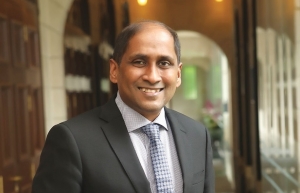 | Sustaining mutual growth through new networks Vietnam and Singapore are intensifying their bilateral ties in new fields with focus set on innovation, energy, and sustainability. Jaya Ratnam, Singaporean Ambassador to Vietnam, provides analysis on how this cooperation has been implemented and benefited the two countries. |
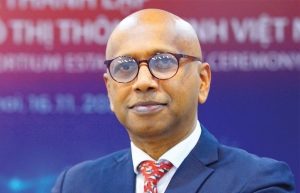 | Tremendous room for growth in investment ties Economic relations between Vietnam and Singapore are being strengthened, with major room for growth. Shanmuga Retnam, executive co-chairman of the Vietnam Smart Cities Consortium, discussed with VIR’s Bich Thuy the Singaporean investment trends and new opportunities. |
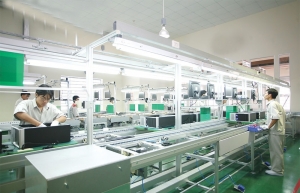 | Singaporeans exploring all avenues Singaporean investors are retaining interest in Vietnam in sectors from property, renewable energy and manufacturing to healthcare and technology. |
 | Digital and professional skills at heart of collaborations Cooperation in implementing training programmes to improve professional skills and digital transformation capacity for employees continues to become a central goal for both Vietnam and Singapore. |
What the stars mean:
★ Poor ★ ★ Promising ★★★ Good ★★★★ Very good ★★★★★ Exceptional
Related Contents
Latest News
More News
- Construction firms poised for growth on public investment and capital market support (February 11, 2026 | 11:38)
- Mitsubishi acquires Thuan An 1 residential development from PDR (February 09, 2026 | 08:00)
- Frasers Property and GELEX Infrastructure propose new joint venture (February 07, 2026 | 15:00)
- Sun Group led consortium selected as investor for new urban area (February 06, 2026 | 15:20)
- Vietnam breaks into Top 10 countries and regions for LEED outside the US (February 05, 2026 | 17:56)
- Fairmont opens first Vietnam property in Hanoi (February 04, 2026 | 16:09)
- Real estate investment trusts pivotal for long-term success (February 02, 2026 | 11:09)
- Dong Nai experiences shifting expectations and new industrial cycle (January 28, 2026 | 09:00)
- An Phat 5 Industrial Park targets ESG-driven investors in Hai Phong (January 26, 2026 | 08:30)
- Decree opens incentives for green urban development (January 24, 2026 | 11:18)

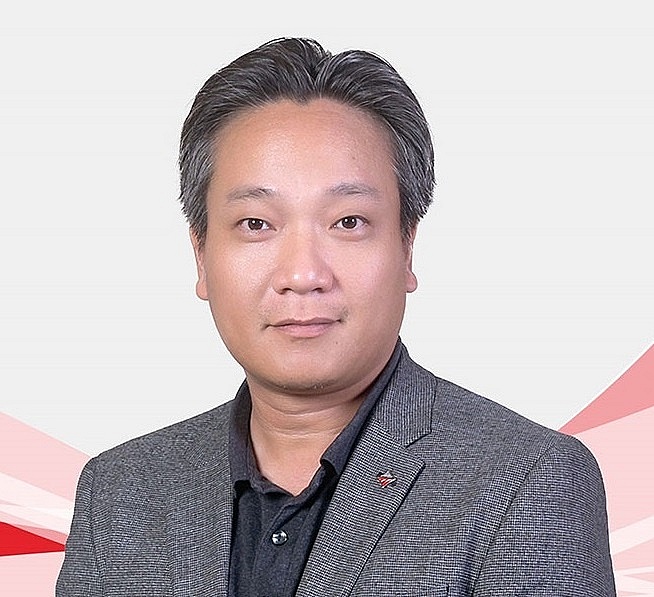
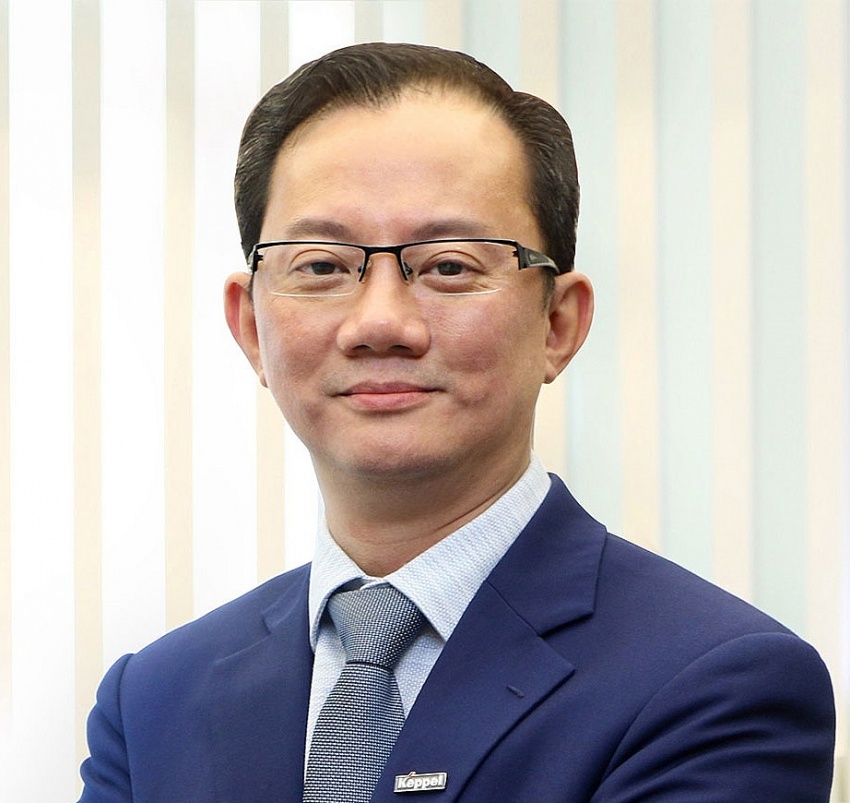
 Tag:
Tag:





















 Mobile Version
Mobile Version